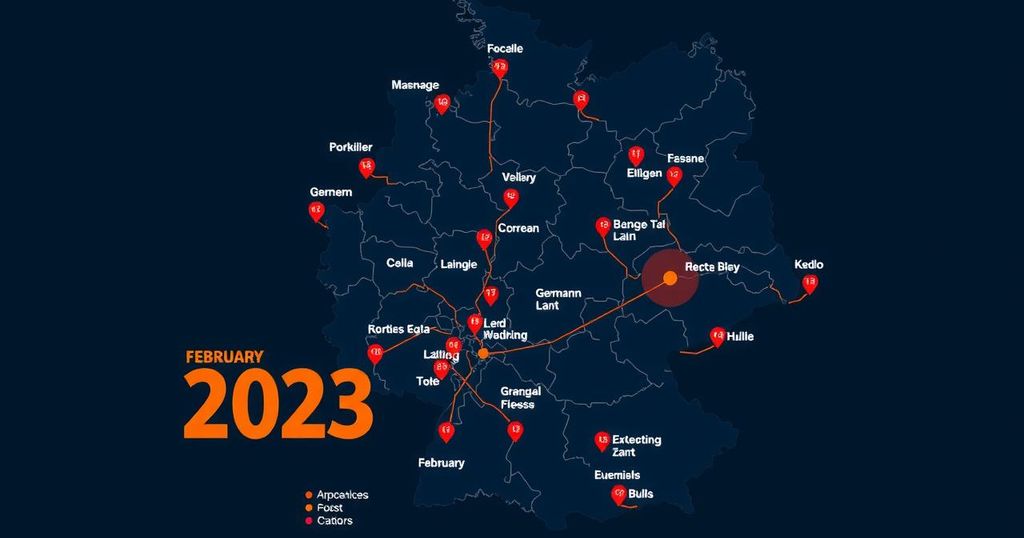Germany Scheduled for Snap Elections Following Coalition Collapse

Germany will hold snap elections on February 23 to address the instability caused by Chancellor Olaf Scholz’s three-party coalition collapse. This timeline follows a confidence vote scheduled for December 16 and aims to restore governmental stability amidst rising economic pressures and geopolitical tensions. The upcoming elections will also highlight challenges posed by the far-right and the need for effective coalition strategies.
Germany is poised to conduct snap elections on February 23, following the recent disintegration of Chancellor Olaf Scholz’s three-party coalition. The proposed date, reached through consensus between the major political factions, arises in the wake of the inherent instability created by the coalition’s collapse, which is largely attributed to fiscal disagreements between Scholz’s Social Democratic Party (SPD) and the Free Democratic Party (FDP). With President Frank-Walter Steinmeier supporting this timeline, the country anticipates a confidence vote on December 16, expected to confirm Scholz’s loss, thereby instigating the dissolution of the Bundestag within a 21-day period. This election marks a significant attempt to re-establish governmental stability as Germany’s economy faces multiple pressures, including inflation and geopolitical tensions. The agreement on the election date embodies efforts to avert a political vacuum that could exacerbate challenges confronting Europe’s largest economy. The backdrop to this urgency includes various economic factors, such as rising inflation rates and the impacts of international conflicts, notably Russia’s war in Ukraine. Consequently, Germany finds itself at a critical juncture, aiming to realign its political framework amidst evolving international relations following the anticipated return of Donald Trump to the global political arena. Despite concerns regarding the rise of the far-right, the center-right alliance stands at the forefront of polling but must navigate coalition dynamics for effective governance.
The backdrop of these snap elections is firmly rooted in the recent dissolution of Olaf Scholz’s coalition government, which had initially come into power in late 2021. Scholz’s administration, a rare tripartite coalition among the SPD, the Greens, and the FDP, faced persistent tensions, particularly surrounding fiscal policies, leading to a crucial rift on economic strategy. This dissolution coincides with broader political shifts in Europe, especially considering the impending return of Donald Trump, which compounds existing uncertainties in global political and economic frameworks. As debates over immigration escalated, the emergence of the far-right Alternative for Germany (AfD) party further complicates the electoral landscape.
In summary, Germany’s decision to hold snap elections on February 23 reflects urgent political needs arising from the collapse of Chancellor Scholz’s coalition. With economic pressures mounting and international dynamics shifting, the election is poised to reshape the political landscape. Furthermore, the evolving debate surrounding immigration and the rise of the AfD complicate coalition strategies, necessitating a recalibration of party alliances for future governance. The conduct of political campaigns in winter further poses unique challenges for voter engagement.
Original Source: www.aljazeera.com







